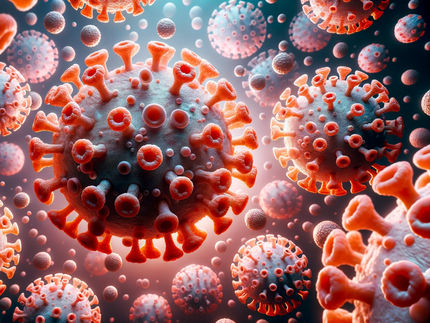Study finds HIV 'superinfection' boosts immune response
Findings may provide insight into HIV-vaccine development
Advertisement
Women who have been infected by two different strains of HIV from two different sexual partners – a condition known as HIV superinfection – have more potent antibody responses that block the replication of the virus compared to women who've only been infected once. These findings, by researchers at Fred Hutchinson Cancer Research Center in Seattle, are published in PLoS Pathogens.
"We found that women who had been infected twice not only had more potent antibody responses, but some of these women had 'elite' antibody activity, meaning that they had a broad and potent ability to neutralize a wide variety of strains of HIV over a sustained period time," said senior author Julie Overbaugh, Ph.D., a member of the Hutchinson Center's Human Biology Division. It is estimated that only about 1 percent of people with HIV are so-called "elite neutralizers" who are able to potently neutralize multiple subtypes of the virus.
"Individuals who become superinfected with a second virus from a different partner represent a unique opportunity for studying the antibody response and may provide insights into the process of developing broad neutralizing antibodies that could inform HIV-vaccine design," she said.
The study suggests that harboring a mixture of different viral strains may be one way to promote a robust antibody response. The findings also suggest that being infected with two different HIV strains not only leads to a strong response, but also a more rapid response that is capable of recognizing many other HIV strains.
The researchers tracked the immune activity of 12 superinfected women from Mombasa, Kenya, over a five-year period and compared each to a control group of three singly infected women. Overbaugh and lead author Valerie Cortez, a doctoral student in her lab, assessed the ability of antibodies present in superinfected and singly infected women to neutralize a spectrum of circulating HIV-1 variants. In doing so they were able to determine whether the presence of two viruses compared to one made a difference in immune response. The researchers controlled for variables such as antibody response prior to superinfection and biomarkers of immunity such as CD4+ T cell count and viral load.
The study found that superinfected women had, on average, 1.68 times more neutralizing antibodies than non-superinfected women, and they scored much higher in their ability to neutralize the virus – superinfected women had 1.46 times greater potency than the singly infected women.
"The holy grail of an HIV vaccine is to elicit antibodies to the virus because antibodies have been shown to block virus infection. But there has been little progress in determining how to elicit such antibodies with a vaccine. The study of individuals HIV infected who have developed strong antibody responses to the virus may shed light on the best approach to design a vaccine that will induce an effective immune response," Overbaugh said.
Other news from the department science
Most read news
More news from our other portals
See the theme worlds for related content
Topic world Antibodies
Antibodies are specialized molecules of our immune system that can specifically recognize and neutralize pathogens or foreign substances. Antibody research in biotech and pharma has recognized this natural defense potential and is working intensively to make it therapeutically useful. From monoclonal antibodies used against cancer or autoimmune diseases to antibody-drug conjugates that specifically transport drugs to disease cells - the possibilities are enormous

Topic world Antibodies
Antibodies are specialized molecules of our immune system that can specifically recognize and neutralize pathogens or foreign substances. Antibody research in biotech and pharma has recognized this natural defense potential and is working intensively to make it therapeutically useful. From monoclonal antibodies used against cancer or autoimmune diseases to antibody-drug conjugates that specifically transport drugs to disease cells - the possibilities are enormous

























































